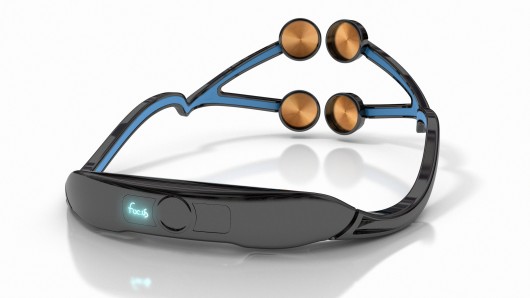Focus Headset: New Tech Claims to Overclock Brain Power
If you have ever wanted to give your brain a jolt of electricity to make it run in overtime, then you are in luck. The Focus Headset claims to overcharge the power of your brain by doing just that. By attaching small, built in, electrodes to your head, the Focus Headset claims to be able to make you smarter. The device is designed for gamers over the age of 18, in order to give them an edge in the hobby.
Focus Headset: Getting Smarter the Easy Way
While it seems like dream come true for all life hackers out there, some questions still remain about the product. Is it safe? Does it actually work? Well, according to a study published by Neuroscience letters last year, the answer is yes. The study taasked 33 users with solving a logic puzzle both with and without the transcranial direct current stimulation device. With no stimulation from the tDCS device, zero of the participants were able to complete the puzzle. When using the device while trying to solve it, the success rate markedly increased to a whopping 40%.
Small studies and hobbyist claims seem to back up the results of the Neuroscience Letters study. So, we know it’s effective, but what about safe? Users claim that the shocks are completely painless, and can be used to do everything from making you smarter, to helping with depression. These sort of reports have developed into a rapidly increasing DIY community surrounding the technology. Science appears to be be lagging behind the pace of the casual inventor however.
“I am concerned about the safety of allowing brain stimulation devices loose on the public, without prior efficacy or safety limits,” said Mark George, director of the Medical University of South Carolina’s Brain Stimulation Laboratory. “We need to proceed cautiously with brain stimulation.”
Currently these devices are sold online, and are completely unregulated. They are not marketed as medical devices, so don’t require an okay from the FDA. We’ll see how far these devices make it without official testing and regulations. Just one bad incident could send this tech to an early grave.

